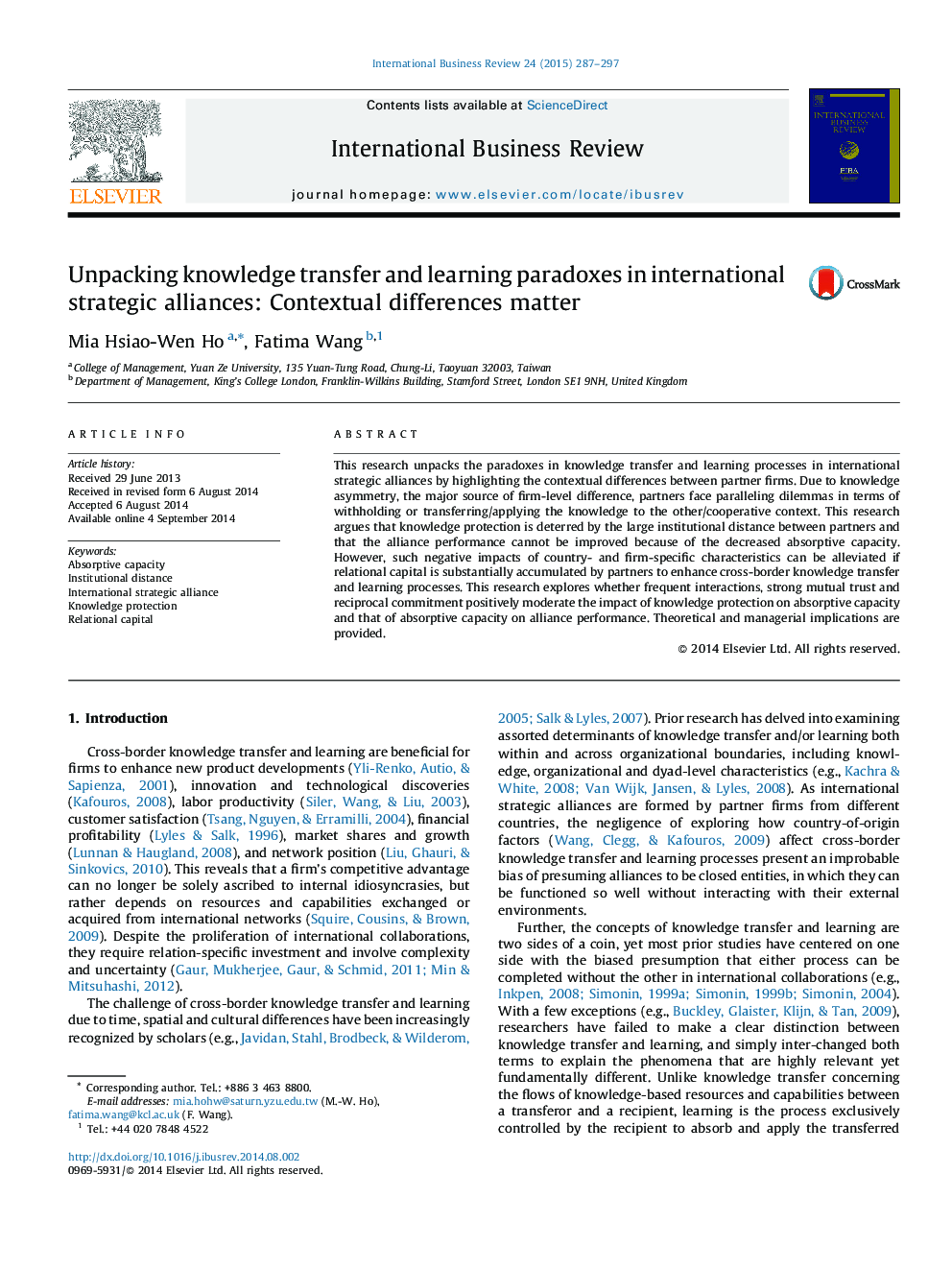| Article ID | Journal | Published Year | Pages | File Type |
|---|---|---|---|---|
| 1001519 | International Business Review | 2015 | 11 Pages |
•We unpack knowledge transfer and learning paradoxes in international strategic alliances.•We explain how knowledge transfer and learning paradoxes affect alliance performance.•We posit institutional distance as a major source of contextual challenges in cross-border collaborations.•Relational capital moderates the negative impacts of knowledge transfer and learning paradoxes on alliance performance.
This research unpacks the paradoxes in knowledge transfer and learning processes in international strategic alliances by highlighting the contextual differences between partner firms. Due to knowledge asymmetry, the major source of firm-level difference, partners face paralleling dilemmas in terms of withholding or transferring/applying the knowledge to the other/cooperative context. This research argues that knowledge protection is deterred by the large institutional distance between partners and that the alliance performance cannot be improved because of the decreased absorptive capacity. However, such negative impacts of country- and firm-specific characteristics can be alleviated if relational capital is substantially accumulated by partners to enhance cross-border knowledge transfer and learning processes. This research explores whether frequent interactions, strong mutual trust and reciprocal commitment positively moderate the impact of knowledge protection on absorptive capacity and that of absorptive capacity on alliance performance. Theoretical and managerial implications are provided.
